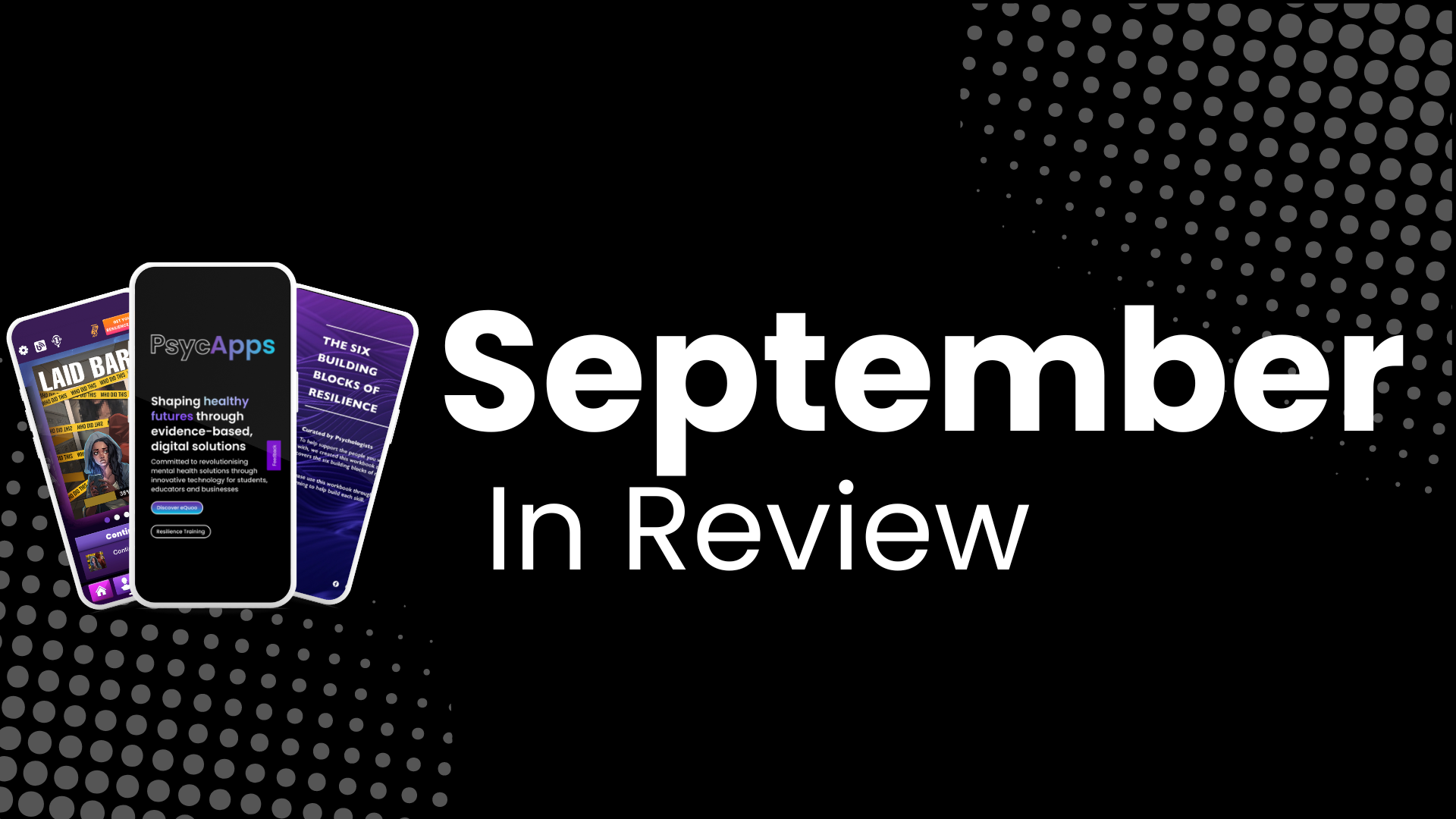September in Review: Key Mental Health Developments
Exploring the Latest Research, Policy Changes, and Global Campaigns in Mental Health
The Lasting Effects of COVID-19 Lockdowns on Young People
New research published in The Guardian highlights the profound impact COVID-19 lockdowns have had on the mental health of young people—particularly teenage girls. The study revealed that the isolation and disruptions caused by the lockdowns prematurely aged girls’ brains more than boys’. This accelerated brain ageing is linked to emotional and cognitive difficulties that may have long-term consequences for mental health.
This study reinforces the critical need for early intervention and accessible mental health resources for young people.
New Data on the Use of the Mental Health Act
This month, the Centre for Mental Health published new data on the use of the Mental Health Act, highlighting significant disparities in mental health detentions, particularly affecting ethnic minority communities. The data reveals an urgent need for reform in how mental health services are delivered, ensuring that care is fair, equitable, and inclusive. This report calls for a comprehensive review of mental health policies and practices to reduce the disproportionate impact on marginalised groups.
Mind’s Response to the Darzi Review of the NHS
In response to the Darzi Review, which calls for an overhaul of the NHS to improve mental health care, Mind has stressed the importance of prioritising mental health services. As the demand for mental health support increases, Mind highlighted the need for a more balanced approach that gives mental healthcare equal footing with physical healthcare.
Workplace Mental Health: The HSC Campaign
The Public Health Agency in Northern Ireland launched a new workplace mental health campaign this month, urging businesses to prioritise mental health in the workplace. The campaign emphasises the importance of creating supportive, resilient work environments as mental health challenges continue to rise, particularly in the post-pandemic landscape.
Workplace mental health should no longer be viewed as a “nice to have” but as a critical component of a healthy, productive workforce. Digital mental health tools, such as the Resilience Training Programme , can provide ongoing support, helping employees manage stress, build resilience, and maintain their mental well-being in an increasingly complex work environment.
The Importance of World Suicide Prevention Day
World Suicide Prevention Day, observed on September 10, focused this year on the theme of “Creating Hope Through Action.” The day served as a global reminder of the critical importance of suicide prevention and the need to address mental health struggles before they become overwhelming.
Digital mental health tools are playing an increasingly important role in suicide prevention. By providing easily accessible resources, connecting people with professional help, and offering real-time intervention, technology can be a powerful tool in reducing the global suicide rate. Early intervention through digital mental health apps such as eQuoo can create a lifeline for those in need, offering hope and building emotional resilience to prevent crises
Conclusion
The month of September brought significant developments to the world of mental health, from groundbreaking research to policy reviews and global awareness campaigns. As a leader in digital mental health, PsycApps remains committed to innovating solutions that meet the evolving needs of individuals and communities. We believe that technology holds the key to a future where mental health support is accessible to everyone, no matter their circumstances.


